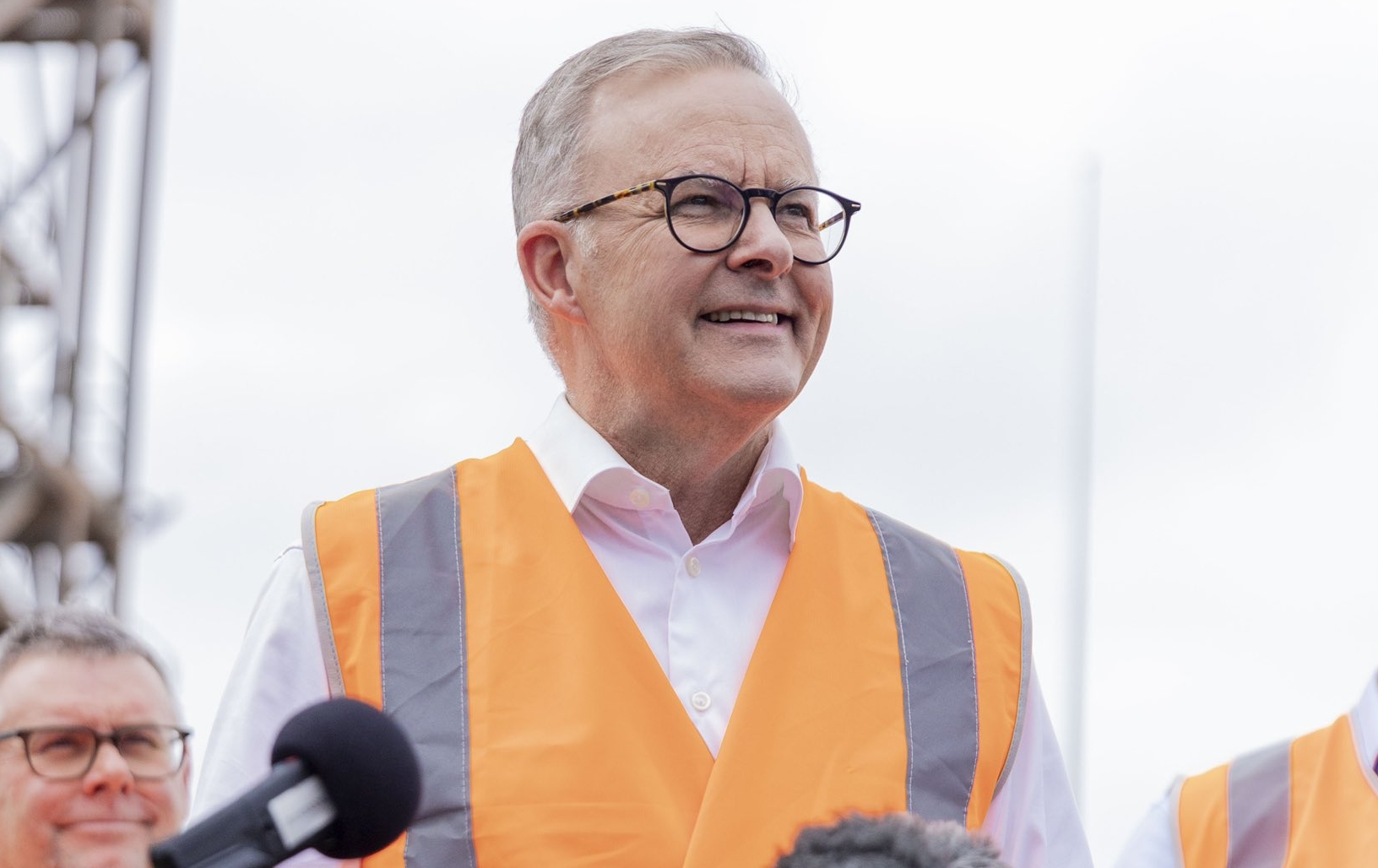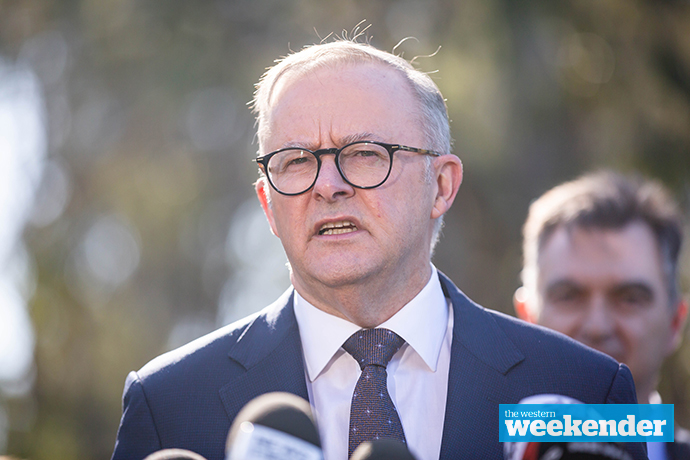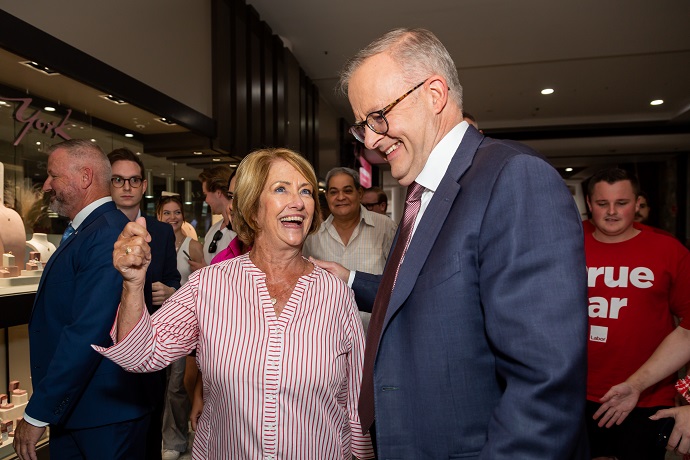 When Anthony Albanese stood before the party faithful on May 21 last year and delivered a teary but affirmative election-winning speech, it felt like the beginning of a long chapter of Labor governance in Australia.
When Anthony Albanese stood before the party faithful on May 21 last year and delivered a teary but affirmative election-winning speech, it felt like the beginning of a long chapter of Labor governance in Australia.
As conservative State Governments also fell, the prospect of Albanese being a one-term Prime Minister was propostrous – especially with Peter Dutton as the alternative.
But at the half-way mark of his first term, there is no question that the honeymoon is over for Albanese.
And now staunch Liberals are convinced of something they thought impossible over the last 18 months: they could win the next election, even with the unpalatable Dutton at the helm.
And the latest Newspoll result suggests they’re not just drinking the Kool-Aid. For the first time, it has Labor and the Coalition at 50/50 on a two party preferred basis.
In other words, support for Albanese is flatlining.
And it’s not really hard to figure out why.

As people continue to deal with the cost-of-living crisis and rising interest rates, especially at Christmas, they tend to turn to their Government for answers.
And true as it may be that the Government is independent from the Reserve Bank, it doesn’t stop people pointing the finger, and wondering what actions or behaviours are leading to their mortage payments continuing to skyrocket.
Albanese was elected with a line about saving people $275 on their power bills and increasing real wages.
Labor can talk about modelling that saw them reach that figure all they like, but most people are left pondering where that $275 is and, if anything, why their power bills have actually increased in the last 18 months, not come down.
Does Anthony Albanese still stand by the $275 claim?
As for wages, any increases you may have seen in the last 18 months have been quickly gobbled up by your bank, electricity provider or local grocery shop.
Albanese’s election campaign was all about life being easier, about convincing us that Labor’s policies would create a brighter future for us all. Instead, the Coalition’s line of ‘it won’t be easy under Albanese’ is starting to ring true.

Albanese also suffered a critical body blow with the result of The Voice referendum.
And it wasn’t necessarily the end result that cruelled him most, but moreso that no matter what he did – including throwing so much of his time and resources into the Yes campaign – he couldn’t move the dial.
People had stopped listening to Albanese along the way, and there’s no guarantee they’ll start tuning in again any time soon.
That can be fatal to a Prime Minister.
By the end of the referendum campaign, he had became condesending in his approach; and that will never win you favour.
For western Sydney, the relationship with Albanese has become even more problematic, with the Government’s decision to cut federal funding to a number of key infrastructure projects hitting hard.
Regardless of what an independent review may have said, you could not possibly think that putting projects associated with Western Sydney International Airport at risk is a smart move.
If the review found these projects suffered from technicalities around the funding, surely they can be rectified.
But if it legitimately found that projects like the M7-M12 interchange, Mulgoa Road upgrades and car parks at Kingswood and St Marys stations were not worthy or valid, then the review is flawed.
Albanese and his Infrastructure Minister Catherine King should be falling over themselves to make sure the airport has all the investment required to make it a success, and that includes investing in the regions impacted by its arrival.
I would challenge Albanese and King to visit the airport site, then come out to Penrith, and explain how they could possibly support the review’s findings that the aforementioned projects are not worthy of continued Federal Government investment.

Albanese likely has no idea how much damage has been done to the Labor brand in western Sydney by these recent cuts, which could have generational impact.
It all plays into the old narrative that while Labor may lead with the heart, it builds very little and stalls the progress needed for a modern Australia.
Albanese’s extraordinary fall from grace over the last 18 months sets up one of the more interesting political years in 2024.
For Peter Dutton, it will be a defining 12 months. One in which he could well position himself as Australia’s next Prime Minister and not just a placeholder.
The Coalition would now be figuring out just what seats it could claim in 2025 to get back into the game and potentially win an election.
For Albanese, he needs to find a way to move the dial back, and it could start with spending more time at home.
Nobody doubts the importance of Australia’s international relationships, but as people battle increasing cost-of-living pressures, there is an expectation that their Prime Minister is at home, fighting for them.
Right now, it feels Labor is way too slow to react to negative situations, often finding itself stuck in the mud (the recent High Court ruling on indefinite immigration detention stands out there).
Albanese can still ensure his legacy is one of greatness in Labor folklore.
But right now, he is teetering on the edge of leading Labor into a rare class of one-term governments.
Albanese is on the nose, and his entire 2024 must be dedicated to finding the air he breathed in the months after the election.

Troy Dodds
Troy Dodds is the Weekender's Managing Editor and Breaking News Reporter. He has more than 20 years experience as a journalist, working with some of Australia's leading media organisations. In 2023, he was named Editor of the Year at the Mumbrella Publish Awards.
